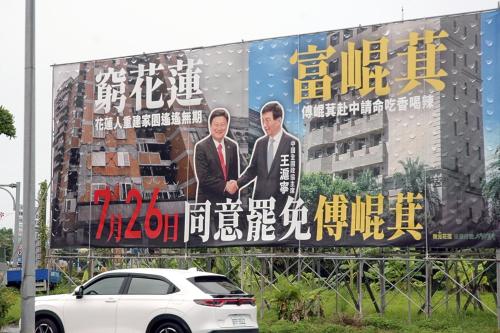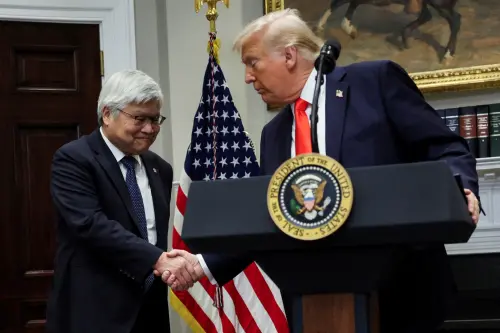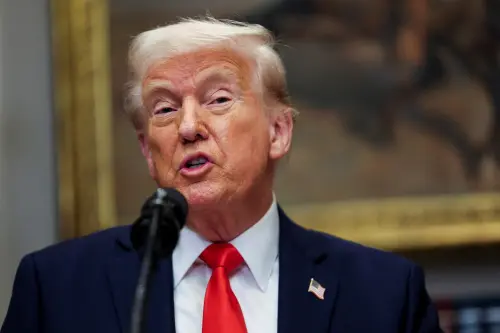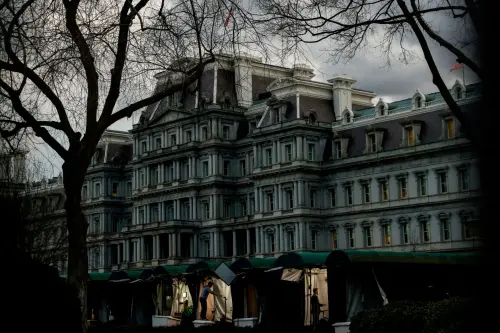Taiwan has long enjoyed bipartisan support in Congress. Over the years, House and Senate members have proposed dozens of bills aimed at helping Taiwan secure its status as self-governing, democratic, and economically prosperous. In the first half of 2025 alone, six bills were introduced in the House of Representatives with “Taiwan” in the title, and both the House and Senate passed resolutions expressing their respective sentiments “regarding United Nations General Assembly Resolution 2758 (XXVI) and the harmful conflation of China’s ‘One China Principle’ and the United States ‘One China Policy.’”
Taiwan-related bills are no different from most legislation: only a handful survive the legislative process and become laws. Between 2017 and 2023, for example, 124 Taiwan-related bills were introduced; five passed, including the Taiwan Travel Act (2018), the Taiwan Allies International Protection and Enhancement Initiative (TAIPEI) Act (2020), the Taiwan Fellowship Act (2022), and the United States-Taiwan Initiative on 21st-Century Trade First Agreement Implementation Act (2023).
Policy experts who follow Taiwan closely tend to greet new legislative initiatives with skepticism. Many Taiwan-related proposals contain more symbolism than substance.
In May, a bipartisan group in the House of Representatives introduced the Six Assurances to Taiwan Act (Six Assurances Act, H.R. 3452). To many Taiwan-watchers, it was another in a long line of symbolic gestures: unlikely to do much harm, but unlikely to do much good either.
But the Six Assurances Act may be worth a second look. Given the Trump administration’s unpredictability, giving the Six Assurances legal force could help to stabilize U.S. policy toward the Taiwan Strait at a time of heightened tension.
The Six Assurances Act would codify into law commitments the U.S. government made to Taiwan’s government during the Reagan administration.
In August 1982, the United States and the People’s Republic of China (PRC) signed a joint communiqué in which the United States stated that, among other things, “it does not seek to carry out a long-term policy of arms sales to Taiwan, that its arms sales to Taiwan will not exceed, either in qualitative or in quantitative terms, the level of those supplied in recent years since the establishment of diplomatic relations between the United States and China, and that it intends gradually to reduce its sale of arms to Taiwan, leading, over a period of time, to a final resolution.”
Taiwan’s leaders feared it would be impossible to defend the island without U.S. military sales, opening the door for Beijing to annex Taiwan by force. This was not President Ronald Reagan’s intention, however. An internal memo clarified that “the U.S. willingness to reduce its arms sales to Taiwan is conditioned absolutely upon the continued commitment of China to the peaceful solution of the Taiwan-PRC differences … the linkage between these two matters is a permanent imperative of U.S. foreign policy.”
To alleviate Taiwan’s leaders’ concerns, the White House asked its representative there to convey six promises. As codified in H.R. 3452, the Six1 Assurances commit the United States to refrain from actions:
- To pause or terminate the provision of arms of a defensive character to Taiwan.
- To negotiate with the People’s Republic of China about the provision of arms of a defensive character to Taiwan.
- To mediate between Taiwan and the People’s Republic of China regarding the issue of sovereignty over Taiwan.
- To change the United States’ long-standing position on the issue of the sovereignty over Taiwan.
- To exert pressure on Taiwan to enter into negotiations with the People’s Republic of China.
The Six Assurances legislation would require the White House to notify Congress before taking any of those actions. Congress would then have the opportunity to pass a joint resolution of disapproval that would stop the administration from acting.
For many reasons—the sensitivity and complexity of the Taiwan issue, the potential for unintended consequences, the success of existing policy over many decades, etc.—congressional intervention in Taiwan policy is risky. For more than 50 years, the executive branch’s bias toward caution has kept the policy stable and contributed to peace and stability in the Taiwan Strait.
Under previous administrations, legislation that would tie the executive branch’s hands on an important and potentially fast-moving international issue would have seemed unwise. The current administration, however, does not show a bias toward caution or stability, and when it comes to Taiwan, President Donald Trump’s positions are especially mercurial and unpredictable.
In the past few weeks alone, the Trump administration has rebuffed Taipei multiple times. On the economic front, after months of negotiations aimed at avoiding a ruinous tariff rate, Taiwan’s leaders learned that the United States would impose a 20% tariff on imports from Taiwan—higher than Japan or South Korea (both at 15%). The administration also floated a proposal to tax semiconductors—Taiwan’s most important export—at 100%. The suggestion that semiconductor firms that build manufacturing plants in the United States might be excused from the tax helped lift the value of TSMC stock, but it did little to calm fears in Taiwan.
U.S.-Taiwan political relations have also soured under Trump. Following a long-established pattern, President Lai Ching-te tried this summer to schedule a short transit visit to the United States en route to diplomatic partners in South America. His plan fell apart when the Trump administration instructed him to cancel a stop in New York. Both The New York Times and The Washington Post linked the rejection of Lai’s visit to the Trump administration’s desire to arrange a summit with PRC leader Xi Jinping.
The U.S.-Taiwan defense relationship is also showing signs of stress. The White House recently called off a meeting between Taiwan’s defense minister and Pentagon officials and delayed action on military sales. On July 29, The Washington Post quoted Ely Ratner, a Biden administration senior defense official: “These concessions send a dangerous signal that America’s approach to Taiwan is negotiable. That will only lead to more Chinese pressure and coercion. For Beijing, the hunger will grow with the eating.”
In short, Taiwan increasingly looks like a bargaining chip in U.S.-China relations—precisely the situation the Six Assurances promised would not occur.
Taiwanese are watching these developments. The Kuomintang, one of Taiwan’s two largest parties, is openly questioning whether the United States is a reliable economic and security partner. There is real concern that the Trump administration might trade away Taiwan’s interests in order to make a deal with Beijing.
If the past 50 years of U.S.-Taiwan-PRC relations have taught us anything, it is that a good policy, consistently applied, can keep crisis and conflict at bay for a very long time. In most cases, proposals to change that policy—however well-intentioned they may be—carry a high risk of making the situation worse.
Trump himself has never shown a principled commitment to Taiwan, and his enthusiasm for a Trump-Xi summit is growing. If written and implemented carefully, the Six Assurances to Taiwan Act—and the strong statement of congressional intent that passing it would convey—may be exactly what U.S.-Taiwan relations need right now.
-
Footnotes
- The other assurance that was offered to Taiwan in 1982 was that the United States would not set a date to terminate arms sales. The current legislation does not include this commitment as a separate item.
The Brookings Institution is committed to quality, independence, and impact.
We are supported by a diverse array of funders. In line with our values and policies, each Brookings publication represents the sole views of its author(s).








Commentary
“The Six Assurances to Taiwan Act”: Status quo, or something new?
August 11, 2025